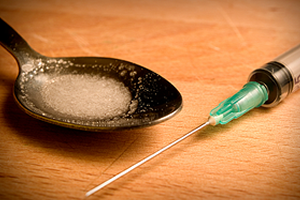It seems hopeless – The heartbreaking news of another celeb, this time Philip Seymour Hoffman, dying through addiction makes life after addiction seem unlikely and tempts some into writing off addicts – particularly those who have experienced one or more relapses.
But what if the disease that Philip Seymour Hoffman was battling wasn’t addiction, but cancer? This reminds me of a conversation I had recently:
A very close friend recently completed rehab. She spent 30 days in a full rehab facility and another 21 days in a 12-Step immersion program. I expressed my constant dread that she would relapse to my other friend who has 20+ years of sobriety.
“I can’t see how she won’t relapse,” I fretted to my friend, “B.” “She’s a nighttime drinker and she lives alone with her 12-year old daughter. What will she do from midnight to 4 am to stay sober?”
“She can adjust to normal sleep hours, she can call a friend, she can read and journal,” B said promptly.
“But what if she does relapse?” I finally got to the real problem I had, “It seems so likely.”
“Let’s imagine a surgeon is presented with an overweight man in congestive heart failure. The patient has a history of noncompliance — he doesn’t exercise, he forgets to take his medicine — the surgeon has every reason to believe that this man will have another heart attack in future years. Should the surgeon refuse to treat the man?”
“Of course not!”
“What if an anorexia patient has a relapse and stops eating healthfully?”
“OK, OK, the addicted patient must be treated despite the risk of relapse.”
That was an actual conversation and it changed the way I look at recovering addicts.
In so many cases it seems as if the patient’s choices are to blame, but does that mean they don’t get medical care? What do we really know about why people make poor decisions?”
Addiction can be viewed as a chronic illness. As with many chronic illnesses – asthma, depression, e.g. – many patients do not do well in their first treatment attempt. Medicines may need to be adjusted, lifestyle changes may be too challenging. Treatment is and should be ongoing with patients working with health care providers to develop more and better strategies for healthful living.
Some addicts will relapse. Some will relapse multiple times. It’s not a moral failure, the addict is fighting a disease that has a path in his or her brain and no known medical cure yet. So far we don’t have a medicine that will cure addiction, but sobriety can control the symptoms. While an addict is sober, she is able to work and support herself, she acts as a strong role model for her child, she participates in family and life. We have a moral imperative to treat any relapse as we would a recurrence of hypertension or other hard-to-beat illness.
As a society we need to educate first responders, addicts and family members about naloxone and how to administer it. Time Health & Family has published several great articles on it, one linked above to the word naloxone and one here. This drug has the ability to save the life of someone who has OD’d. Again, if your child was severely allergic to bees, would you not keep an EpiPen on hand at all times?
I don’t know how long my friend’s new sobriety will last. Hopefully years, maybe for her entire life, possibly just weeks. If she needs help, we need to do what we can, both as individuals and as a society to keep her alive and give her another shot at health.
What if Philip Seymour Hoffman had died after battling cancer? He died after fighting addiction every day and every night for 23 years. I say: God Bless. You fought the good fight against addiction. Rest in peace and be proud of those years that you were so productive and inspirational.







